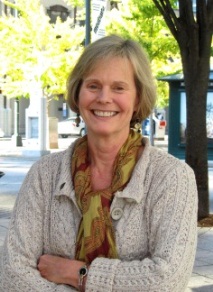News
The Critical Role Research Plays in Finding Leaders That Matter for Missions that Matter®

An interview with Joan Schlachter, BoardWalk Senior Associate and Winner of the 2013 AESC Award for Excellence and Professionalism in Research
During its annual Research Associates Summit, BoardWalk Senior Associate Joan Schlachter received the 2013 Award for Excellence and Professionalism in Research by the Association of Executive Search Consultants (AESC).
AESC is the worldwide professional association for the retained executive search and leadership consulting industry. Joan was the first award recipient in AESC’s history to represent executive recruitment in the nonprofit industry.
“Ms. Schlachter’s superior knowledge of executive search, combined with her natural talent assessment instincts, rigorous targeting skills and tenacious commitment to excellence make Joan a superb researcher,” said Peter M. Felix, CBE, and AESC President.
A 20+ year executive search professional, Joan has worked as a senior associate with Heidrick & Struggles, Diversified Search and Paul Ray & Co. She has led the BoardWalk search team as senior associate since 2007. Joan’s industry sector expertise includes nonprofit, healthcare and higher education.
Below is an exclusive interview with Joan on the role of a researcher, the complexity of the search process, and what she loves most about her job.
What role does a researcher play in the executive search process?
The term “researcher” is used generically in search firms and it can encompass a broad range of responsibilities. In my role as a Senior Associate at BoardWalk, my primary responsibilities include joining the lead consultant in client and stakeholders meetings as part of our fact finding process; creating the search strategy; identifying our core group of sources and prospects based on the strategy; calling sources and prospects to market the search; conducting phone interviews and assessments; and initiatingongoing communication with the consultant, client and candidates throughout the course of the search.
Can you tell us more about the search strategy and how you identify who you will call?
Our search team spends many hours, and sometimes days, speaking to our clients to learn about the organization, their challenges and aspirations, and the impact the executive we are recruiting will have in forwarding the mission of our client. Search strategies are unique, creative and evolving roadmaps based on each client’s needs. From our intelligence gathering, we target specific organizations and functional roles. Our broader strategy includes identifying sources including thought leaders, executives in our network and “creative alternatives.” I spend many hours in the initial search process researching the internet (organization websites, social media, professional organizations, articles, conferences, and other sources); our proprietary database and our firm’s network of executives. And, of course, our conversations with this targeted group lead us to other executives and targets as we expand our network throughout the search.
Could you talk about your phone interview and assessment process? How do you determine who might be a good fit for the position?
Our search team spends a lot of time upfront with the client and stakeholders learning about the organization. We have in-depth discussions about the challenges in the organization and specific challenges of the position; key indicators of success and the experience and skill sets needed for the position. We assimilate this information to create a Leadership Profile (approved by the client.) This document is not only a marketing tool for the search, but also the benchmark by which we assess candidates.
All executive roles demand core leadership attributes and skills including confidence, intelligence, clarity, energy—and we listen for these attributes as we conduct our phone interviews. But each position also demands a unique set of skills and experiences. We direct the conversation with competency based questions to see if there could be a match for the role. A more subtle judgment that we make is whether the individual could be a cultural match for the organization. Individuals need to understand that we are retained by clients and our job is to find our clients a slate of extremely qualified candidates. Our job is to rule people in, not out, and the fact that a person is not the right match for a particular search is not a value judgment about their particular experience or skill sets. No matter what the outcome, our customer service standard is to treat each person with respect; we pride ourselves on our transparent communication and follow up.
What do you love most about your job?
There are lots of positives about being part of the BoardWalk team, search in general, and specifically working with clients in the nonprofit sector. On the personal side, I enjoy working with people. I have been in search almost 25 years, but I came to it from a career in social work. I have always enjoyed learning about people, and finding solutions for challenges. The BoardWalk team is quite special—smart, dedicated, experienced and hardworking. All of my career I have been fortunate to work with special teams, but I particularly like the focus of working with nonprofit clients. In a sense, working in this sector has brought my career full circle.
I love doing research and finding people who are new to us. In fact, probably 70-80% of the people we contact for any search are individuals we discover through targeted research. And I truly enjoy talking to people everyday who are passionate about their work—that is what is so special about this sector.
Thank you, and again, congratulations on your AESC Researcher Award!
